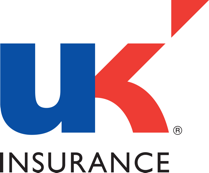Insurance in the United Kingdom: An Overview
Insurance in the United Kingdom plays a crucial role in protecting individuals, businesses, and assets against various risks. This article provides a comprehensive overview of the insurance industry in the UK, including types of insurance, major players, regulatory framework, challenges, and emerging trends.

Types of Insurance
1. Life Insurance: Life insurance policies provide financial protection to beneficiaries in the event of the insured’s death. Types of life insurance include term life, whole life, and critical illness cover.
2. Property and Casualty Insurance: Property and casualty insurance covers physical property (e.g., homes, buildings) and liability risks (e.g., public liability, professional indemnity). It includes home insurance, commercial property insurance, and various liability insurances.
3. Health Insurance: Health insurance in the UK supplements the National Health Service (NHS) by covering private medical treatments, consultations, and sometimes dental and optical care.
4. Motor Insurance: Motor insurance is compulsory for all vehicles driven on UK roads. It includes third-party only, third-party fire and theft, and comprehensive cover options.
5. Travel Insurance: Travel insurance provides coverage for unexpected events such as trip cancellations, medical emergencies abroad, and lost luggage.
Major Insurance Companies
1. Aviva plc: Aviva is one of the largest insurers in the UK, offering life insurance, general insurance, and asset management services.
2. Legal & General Group plc: Legal & General provides life insurance, pensions, and investment management services. It is a significant player in the UK insurance and financial services market.
3. Direct Line Group: Direct Line Group offers a range of insurance products including motor, home, and commercial insurance through brands like Direct Line, Churchill, and Green Flag.
4. Prudential plc: Prudential operates in the UK insurance market through Prudential UK, offering life insurance, retirement solutions, and investment products.
5. RSA Insurance Group plc: RSA Insurance provides personal and commercial insurance products, including home, motor, and commercial property insurance.
Regulatory Framework
The insurance industry in the UK is regulated by the Prudential Regulation Authority (PRA) and the Financial Conduct Authority (FCA). These regulatory bodies ensure that insurers operate responsibly, maintain financial stability, and treat customers fairly.
Challenges Facing the Industry
1. Regulatory Compliance: Insurers must comply with stringent regulatory requirements concerning solvency, capital adequacy, and consumer protection.
2. Technological Disruption: Insurtech innovations are transforming the industry, with advancements in digital distribution, data analytics, and customer engagement.
3. Brexit Implications: The UK’s departure from the European Union has implications for insurance regulations, cross-border operations, and access to European markets.
Emerging Trends
1. Digital Transformation: Insurers are investing in digital platforms to enhance customer experience, streamline operations, and offer personalized insurance products.
2. Sustainability Initiatives: There is a growing focus on sustainable insurance practices, including climate risk management, green insurance products, and environmental, social, and governance (ESG) criteria integration.
3. Cyber Insurance: With increasing cyber threats, there is a rising demand for cyber insurance to protect businesses against data breaches and cyberattacks.